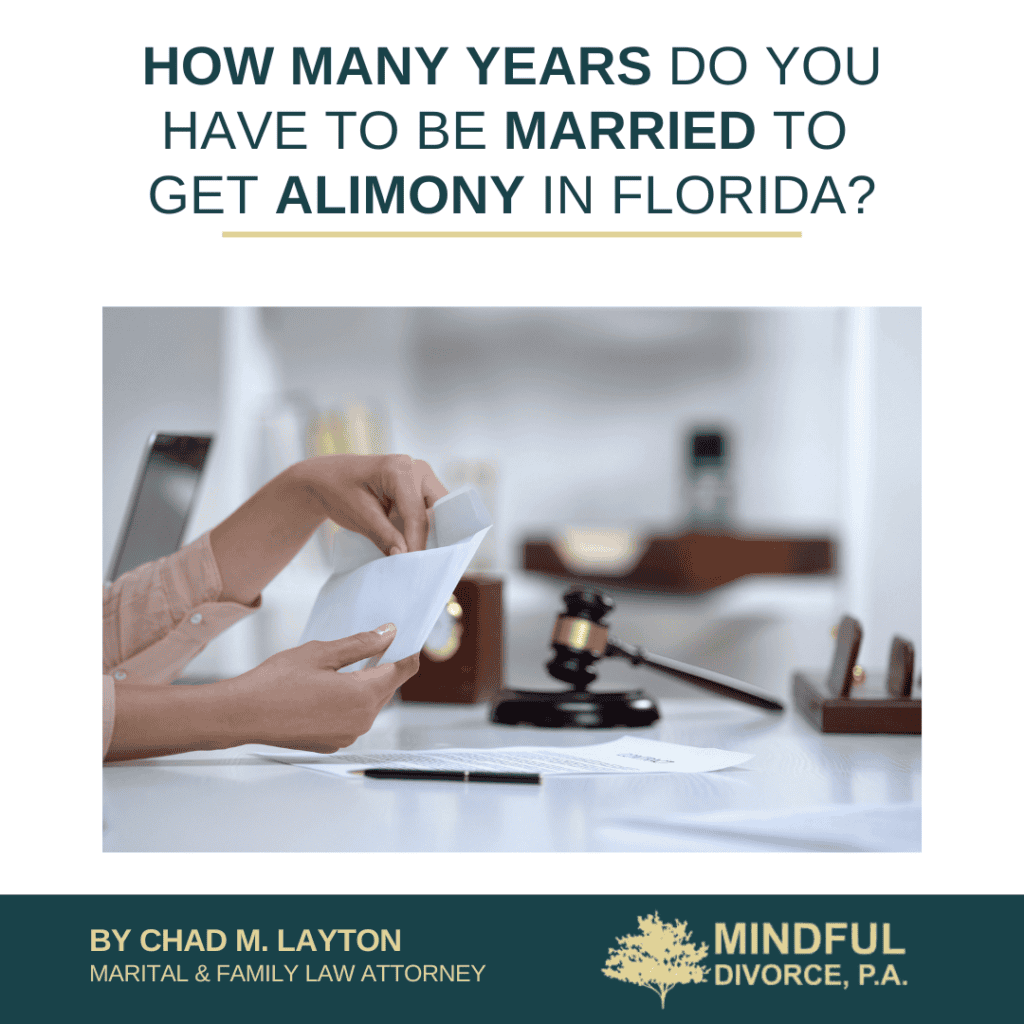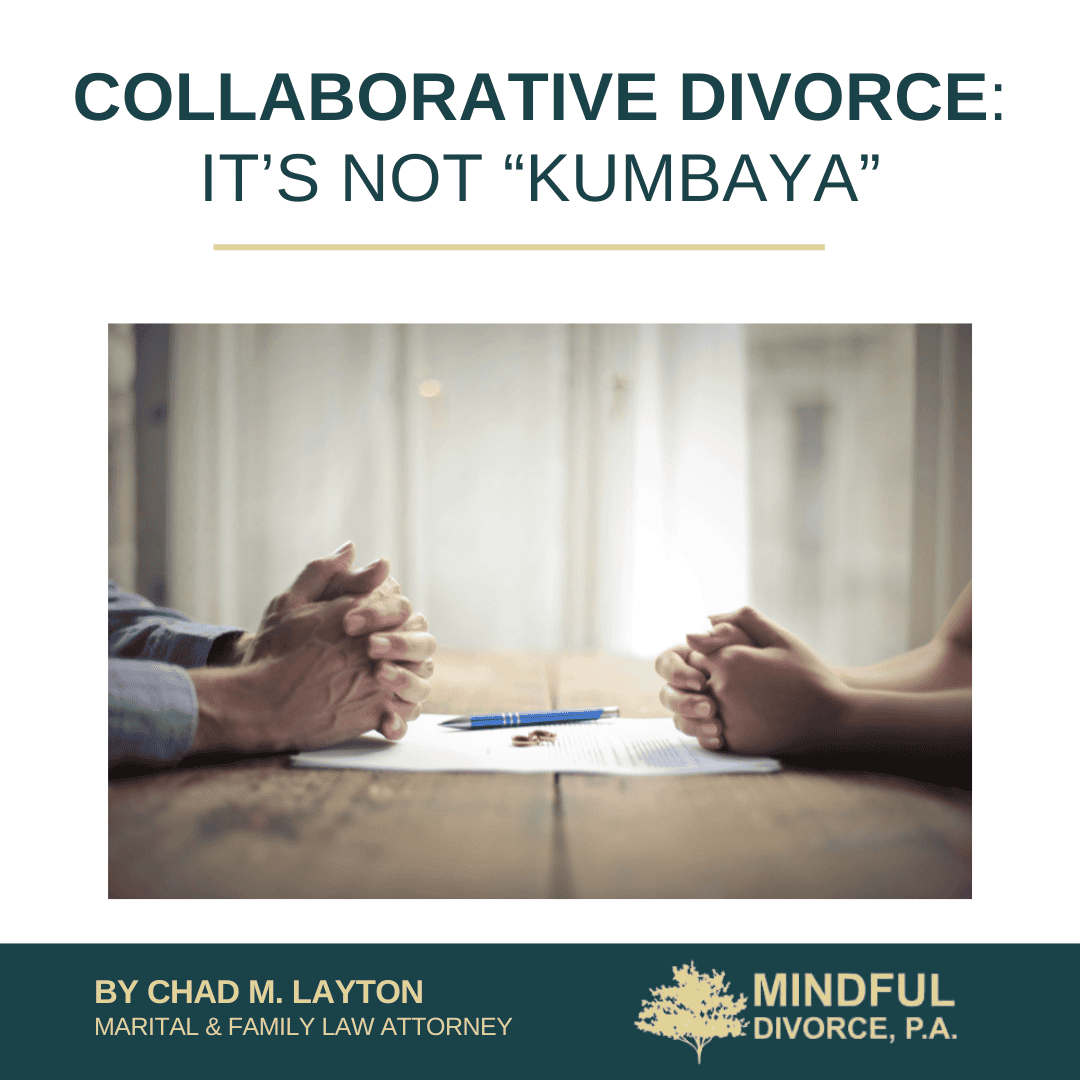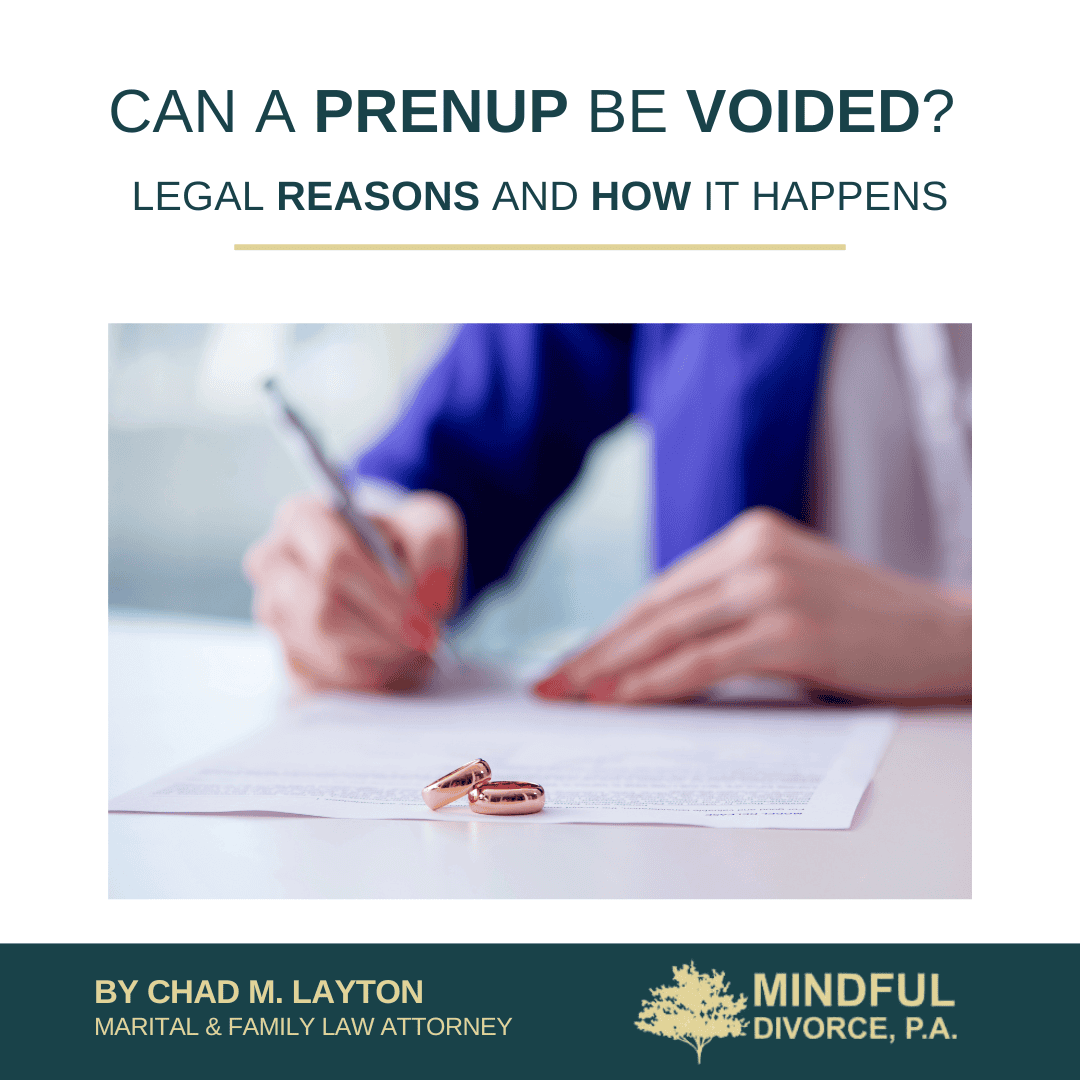
Have you felt uneasy about alimony rules in Florida? It’s common to wonder how marriage length ties into the likelihood of receiving or paying support. We’re here to explain how Florida courts factor in duration and other aspects.
At Mindful Divorce, P.A., we know that life never moves in a straight line, which is why we center our approach on open communication and predictable, fixed-fee services. Let’s explore how many years of marriage might influence alimony in this state and what else the court evaluates along the way.
Florida Alimony: Is There a Minimum Marriage Length?
Florida statutes do not state an absolute minimum number of years before a spouse can seek alimony. Instead, courts look at whether one spouse needs support and whether the other can feasibly pay. Marriage duration is a primary factor, but it’s not the single requirement. Even spouses in short-term marriages can pursue alimony if circumstances warrant it.
At the same time, it may be simpler for a spouse to request alimony after a longer marriage. Judges often see extended marriages as a more stable economic partnership. If someone has stayed out of the workforce for a decade or more, a court may be more open to awarding support, assuming the paying spouse has enough means.
As of July 2023, Florida law defines marriages lasting less than 10 years as short-term, those lasting ten to twenty years are moderate-term, and those exceeding twenty years are long-term. In each category, judges apply the same fundamental rules: Do you need help, and does the other spouse have the ability to pay?
How Marriage Duration Impacts Alimony
While there’s no strict threshold, how long you were married often serves as a backbone for alimony considerations. Florida law places weight on short, moderate, and long-term timelines. Understanding these groupings helps, although the court examines far more than just how many years were spent together.
Categorizing Marriage Lengths
Courts typically classify marriages into three durations:
- Short-term: Fewer than 10 years
- Moderate-term: Ranging from 10 to 20 years
- Long-term: 20 years or longer
Short-term marriages often face greater obstacles toward a long-lasting alimony award. In moderate-term marriages, some type of short-range or durational support is more common. Permanent alimony is no longer awarded under Florida law as of July 2023. Instead, courts may award durational or rehabilitative alimony based on the circumstances of the marriage.
Alimony Likelihood by Marriage Length
Here’s a quick reference summarizing how courts might view duration:
| Marriage Length | General Tendency |
| Fewer than 10 years | Less likely to receive extended alimony, though possible under specific conditions |
| 10 to 20 years | Has an increased chance of receiving durational or rehabilitative support |
| 20 years or longer | May qualify for longer-term durational or rehabilitative alimony, based on need and resources |
Courts aren’t bound to rigid formulas when granting support, but these categories help guide decisions about the type and duration of alimony. Even in a two-year marriage, the court may award support if circumstances are compelling. Likewise, a 20-year union no longer guarantees a long-term award—courts must still evaluate factors like financial need, ability to pay, and the appropriateness of durational or rehabilitative alimony.
Key Factors Florida Courts Consider for Alimony
Aside from marriage length, Florida courts look at a wide array of details when deciding whether to order alimony. The objective is to align any support with each spouse’s needs and finances. Judges use their discretion to assess all relevant angles before making the final determination.
Financial Resources and Needs
Judges start by looking at each spouse’s financial profile. This includes earned wages, bank accounts, property, and outstanding debts. One spouse’s lack of funds alone isn’t enough to ensure alimony; the court must also confirm that the other spouse can cover the cost. If there’s a big gap in earnings along with an imbalance in assets, alimony becomes more likely. Conversely, if both spouses earn similar amounts and no one has a lopsided advantage, the need for alimony fades.
Standard of Living During Marriage
Courts want the receiving spouse to maintain a lifestyle close to what was enjoyed during the marriage, if practical. They calculate monthly expenses and typical spending habits over the years. If you dined out regularly, traveled often, or maintained a high standard of living, the court considers these lifestyle indicators. However, dividing one household budget into two often sparks financial adjustments for both spouses.
Other Important Factors
The court also examines:
- Age and health: If someone faces health setbacks that reduce earning potential, it can bolster the case for ongoing support.
- Contributions to the marriage: Non-financial roles like homemaking or supporting a spouse’s career hold real value.
- Sacrificed opportunities: Did one spouse delay school or a promotion for the marriage?
- Responsibilities for minor children: Childcare tasks affecting available work hours.
- Domestic violence or abuse: Abusive conduct can deeply affect alimony outcomes.
Dealing With Alimony in Florida? Contact Mindful Divorce, P.A.
At Mindful Divorce, P.A., our focus is on clarity and well-being. We believe the financial side of divorce should not be veiled in mystery. That’s why we offer fixed-fee schedules that can reduce stress and help you plan ahead.
If you want to understand your odds of alimony—or if you need help defending against an unmanageable request—consider getting in touch with our team. We can discuss details that matter most and steer you toward strategic choices.
For more information, call us at 561-537-8227 or visit our Contact Us page to take the next step. Our goal is to support clients in achieving fair results without hidden billing surprises.



